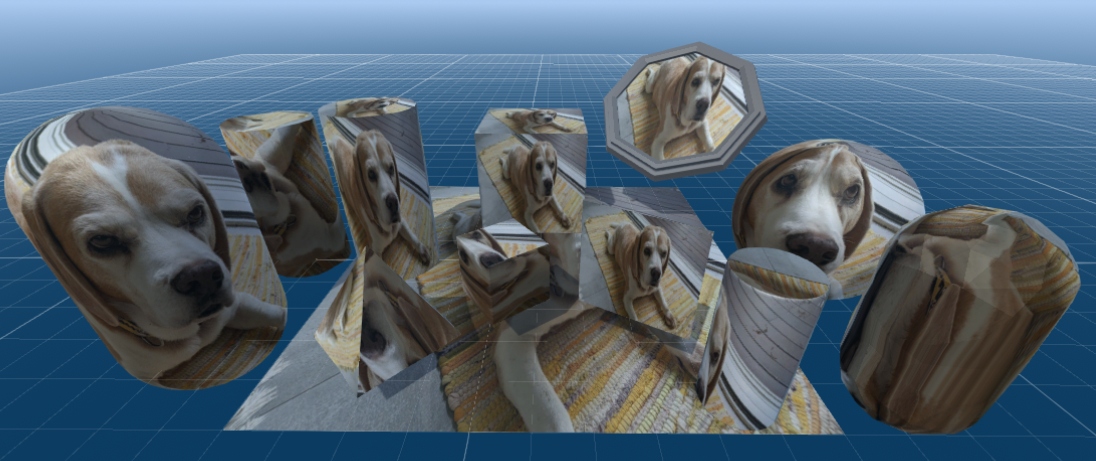Texture Asset: Difference between revisions
(Added much more detailed usage content) |
|||
| Line 38: | Line 38: | ||
Any custom meshes that you use should display custom textures correctly as long as the mesh has correct UV mapping. This means if you have a custom model with a matching set of textures, you can import the [[Mesh Asset]], import the textures, create a material to hold the textures and apply them to a prop using the mesh. | Any custom meshes that you use should display custom textures correctly as long as the mesh has correct UV mapping. This means if you have a custom model with a matching set of textures, you can import the [[Mesh Asset]], import the textures, create a material to hold the textures and apply them to a prop using the mesh. | ||
===Using a custom minigame/board image=== | ===Using a custom minigame/board preview image=== | ||
You can import a texture and use it for the minigame or board image that appears in the lobby or on the minigame loading scene/ruleset menu. This preview image can be set in the [[Mod Settings]] under ''Minigame Details'' or ''Board Details'' depending on the mod type. | You can import a texture and use it for the minigame or board image that appears in the lobby or on the minigame loading scene/ruleset menu. This preview image can be set in the [[Mod Settings]] under ''Minigame Details'' or ''Board Details'' depending on the mod type. | ||
[[Category:Assets]] | [[Category:Assets]] | ||
Revision as of 20:41, 8 December 2022
A texture asset is a 2D image that can be used with materials to texture objects.
See Importing Images for guidance and settings available when importing texture assets.
Imported textures can be viewed in the Asset Browser in the Custom > Textures folder.
Usage
Put a Texture on an object
Using a material
Textures must be assigned to a custom Material Asset. In Pummel Party, textures are not applied to objects directly, materials are applied to objects, and the material use a texture to define what they should look like. The different types of Material Assets can take different sets of textures to create the materials look. If you just want to display a texture on an object, the texture that should be set is the one named Albedo. This is the primary visible texture that is displayed when the material is used on an object.
The other textures that a material can use are for advanced graphical effects, such as Normal Mapping. See the Material Asset page for more details on the different texture types.
Props that support custom textures
Most of the provided objects that have flat colors aren't UV Mapped to support full textures so trying to use a custom material with a texture on them will just change their colors to some part of your texture, but not show the texture properly.
There are some props that do support textures. These are most of the basic primitive shapes.
The best props to show textures on are the following. You can search for these when setting the Prop field of a Prop Component. You can also find them in the Asset Browser and drag them into the Scene View to use them.
- Cube
- Plane
- Sphere
- Capsule
- Cylinder
- LowPolyQuad
- CustomBoardSpace
The following work when showing textures, but may not be the best
- LowPolyPyramid
- BevelCube
- BevelCylinder
- LowPolyCapsule
- LowPolyCylinder
Any custom meshes that you use should display custom textures correctly as long as the mesh has correct UV mapping. This means if you have a custom model with a matching set of textures, you can import the Mesh Asset, import the textures, create a material to hold the textures and apply them to a prop using the mesh.
Using a custom minigame/board preview image
You can import a texture and use it for the minigame or board image that appears in the lobby or on the minigame loading scene/ruleset menu. This preview image can be set in the Mod Settings under Minigame Details or Board Details depending on the mod type.
